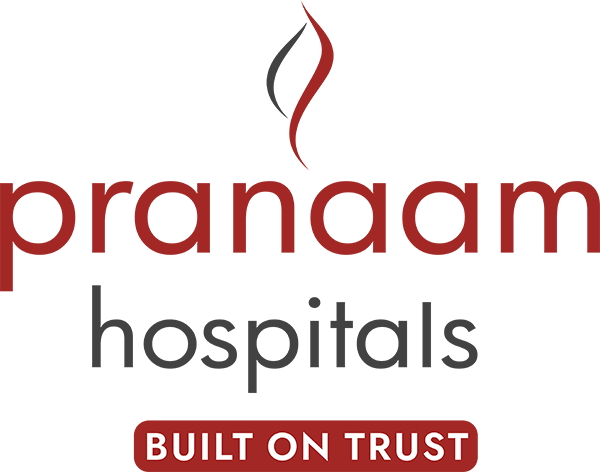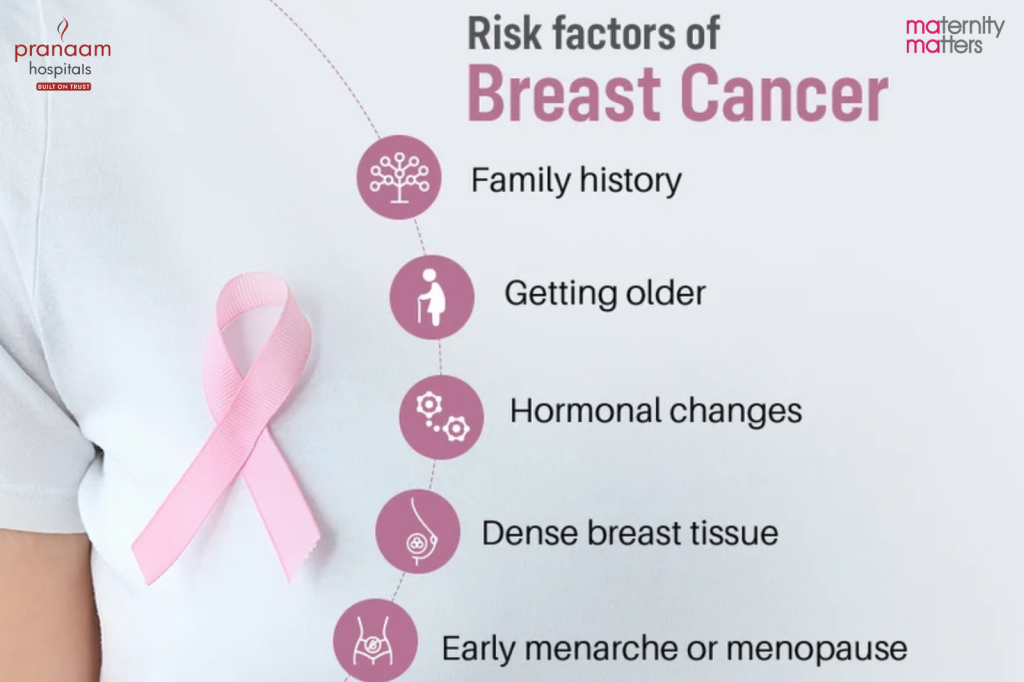Though breast cancer is a difficult disease, its exact causes are yet unknown. However, several risk factors have been identified that can increase the likelihood of developing breast cancer.
Some of the known risk factors and potential causes of breast cancer include:
Gender: Compared to men, women are far more likely to get breast cancer. This is primarily because women have more breast tissue
Age: Breast cancer risk increases as people age. Most breast cancers are diagnosed in women over the age of 50
Family History and Genetics: A family history of breast cancer, especially in close relatives like a mother, sister, or daughter, can increase the risk. Some inherited gene mutations, such as BRCA1 and BRCA2, are associated with a significantly higher risk of breast cancer.
Hormone Replacement Therapy (HRT): Long-term use of hormone replacement therapy, particularly with estrogen and progestin, has been linked to an increased risk of breast cancer.
Personal History of Breast Cancer: Women who have previously had breast cancer are at a higher risk of developing it again.
Reproductive Factors: Factors that influence a woman’s reproductive history, such as early menstruation (before age 12), late menopause (after age 55), and having the first child at an older age, can increase the risk.
Radiation Exposure: High doses of ionizing radiation, such as radiation therapy for other cancers, can increase the risk of breast cancer.
Lifestyle Factors: Certain lifestyle choices and behaviors can influence breast cancer risk. These include a diet high in saturated fats, alcohol consumption, lack of physical activity, and being overweight or obese.
Hormonal Factors: Prolonged exposure to estrogen, whether through early menstruation or late menopause, can increase the risk of breast cancer.
Dense Breast Tissue: There may be a small increase in the risk of breast cancer in women with denser breast tissue.
It’s important to remember that breast cancer is a multifactorial disease, and a combination of these factors may contribute to an individual’s risk. Regular breast cancer screening, self-exams, and discussions with healthcare professionals can help with early detection and treatment, which can significantly improve outcomes. Additionally, making healthy lifestyle choices, such as maintaining a balanced diet, staying physically active, and limiting alcohol consumption, can help reduce the risk of breast cancer.


